There are a lot of myths and rumors floating around about credit card companies and their ability to take your house if you don’t pay your bills. Some people believe that it’s as easy as a phone call to the credit card company, and your home is gone. Is this true? The answer may surprise you.
When a credit card company takes your house
If you find yourself falling behind on credit card payments, it is important to understand your rights and the potential consequences. The first step should be contacting your creditors directly and explaining why you cannot make payments as agreed. Many companies are willing to work with you in such situations, either by postponing payments or reducing interest rates, late fees, or other charges.
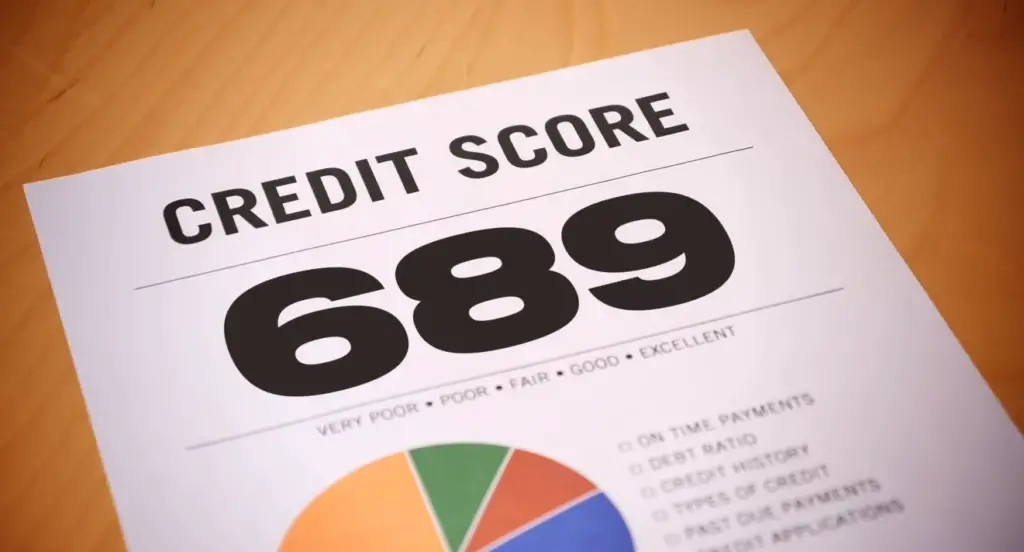
If a creditor wishes to take away your house, they are obligated to sue you in court. It’s crucial that you recognize your rights and implore them if needed since this is possible in many cases. In some states, you may be able to claim a homestead exemption from creditors.
If all else fails, filing for bankruptcy will stop any lawsuits or collection attempts against you. Bankruptcy should only be used as a last resort because it can damage your credit score for many years and make it more difficult for you to get loans or other forms of financing in the future. However, if you are facing serious financial hardship, it is important to consider all of your options.
Secured debts are those that are backed by collateral, such as a house or car. Unsecured debts, on the other hand, do not have any collateral backing them up. Credit cards are usually considered unsecured debt, which means that creditors cannot take your house if you fall behind on payments.
At the end of the day, it is unlikely that a credit card company will be able to take your house in order to repay an outstanding debt balance. However, understanding all of your rights and potential legal consequences is crucial in protecting yourself from any potential action taken against you by creditors. [1]
Credit card companies cannot take your house without filing a separate lawsuit against you and obtaining a judgment in their favor. However, understanding how debt works and knowing what your rights are can go a long way towards protecting yourself from serious legal consequences. If you’re ever in doubt or have any questions about debt collection laws, speak with an experienced bankruptcy attorney who can provide expert advice.
You fall behind on credit card bills
The most important thing to remember is that the credit card company cannot take your house, unless you have given them permission to do so in writing. However, they may be able to garnish wages and bank accounts – so it’s important to find out what options are available if you fall behind on payments.

You can speak with a nonprofit credit counseling service or a housing counselor for help understanding your rights and options. They can also let you know about any local resources that are available, such as loan modification programs or foreclosure prevention programs.
If you cannot afford to pay off your debt in one lump sum, contact the credit card company and request a payment plan or settlement option so that you can manage the repayment process. If the company agrees, be sure to get the agreement in writing so you have it for your records.
Your debt collector files a lawsuit against you
The company can take your house if they file a lawsuit against you and get a judgment from the court. This means that they have legal proof that you owe them money, and they can use this to try to seize certain assets of yours. You may receive a notice of the lawsuit in the mail or from your local courthouse. If you fail to appear in court or don’t contest the debt, then the court will issue a default judgment.
This judgment will allow the company to attach liens to any real estate or personal property that is located in the same state as where the lawsuit was filed. Unfortunately, if you have other properties beyond that state, those are not covered by this lien and the creditor cannot take them.
If your house was used as collateral for the debt, then the lender can foreclose on it in order to pay off what you owe them. Depending on which state you live in, this process may take a few months or even years before it is finalized. Once it is completed, the lender will have the right to sell your house and use the proceeds to satisfy their debt.
You should always keep an eye out for any signs of legal action from creditors, including notices from courthouses or collections agencies. It’s also important to remember that if you are able to settle your debt with the credit card company before they file a lawsuit against you, then they won’t be able to take your house.
It’s also wise to speak with an attorney if you have any questions about the process or need help understanding your rights or responsibilities in regards to dealing with creditors. They can provide you with invaluable advice and assistance that will make sure you don’t risk losing your home.
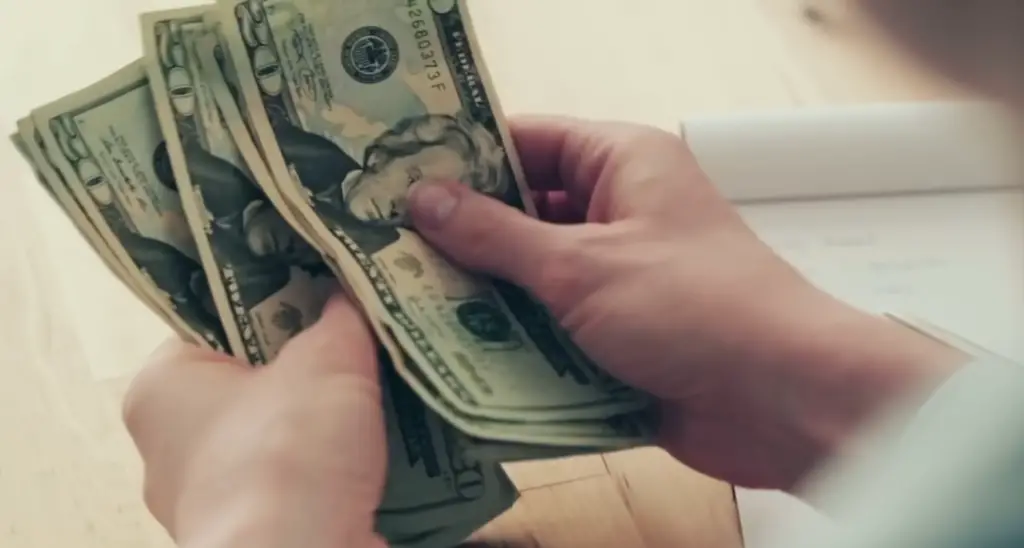
Your debt collector comes after your stuff
The creditor can sue you in court. If they win the lawsuit, they may get a judgment against you for the amount that you owe plus interest and legal fees. This judgment gives them the legal right to take certain property that is owned by you to satisfy your debt. This is called a “garnishment.”
The types of property that creditors can legally take from you include bank accounts, wages, cars, and even your house. However, not all creditors are able to go after all of these things. Generally speaking, credit card companies do not have the power to seize real estate like a house or land (unless you put it up as collateral for a loan).
How do property exemptions work?
In most states, property that you own outright cannot be taken from you by a credit card company if you fall behind on payments. However, certain types of property may still be vulnerable to repossession depending on the laws in your state and how much debt you owe.
Generally speaking, the law allows for a certain amount of money or assets (called an exemption) to remain exempt from seizure by creditors. This means that if your total debts exceed what is allowed as exempt under the law, then a creditor can take steps to seize and sell some of your property in order to pay off what you owe.
The amount of exemptions available will vary depending on where you live so it’s important to research exactly what type of exemptions are available in your state. In some states, you may be able to keep a certain amount of money or property that is exempt from the debt collection process. For example, in California, you can claim an exemption on up to $175,000 worth of equity in a primary home.
It’s also wise to consult with a financial adviser or lawyer if you have questions about which assets will remain protected under property exemptions.

Filing for bankruptcy will stop a lawsuit
Bankruptcy can stop a debt collector from taking legal action against you, including filing a lawsuit. When you file for bankruptcy, the court places an automatic stay on all collections activity. This means that debt collectors must immediately stop trying to collect any money that they are owed.
Filing for bankruptcy can help protect assets such as your home and car. In some cases, it will allow you to keep your house even if it is being threatened by creditors. It’s important to note however, that not all types of debt can be discharged through bankruptcy (such as certain taxes or student loans).
Before considering filing for bankruptcy, it’s best to consult with an experienced bankruptcy attorney. They can discuss your specific situation and provide advice on the best course of action for you.
There are also other options available, such as negotiating with creditors or seeking out a debt consolidation loan. Negotiating with creditors may allow you to make lower payments or even settle the debt for less than what is owed. A debt consolidation loan will give you one new loan amount that pays off all of your existing debts.
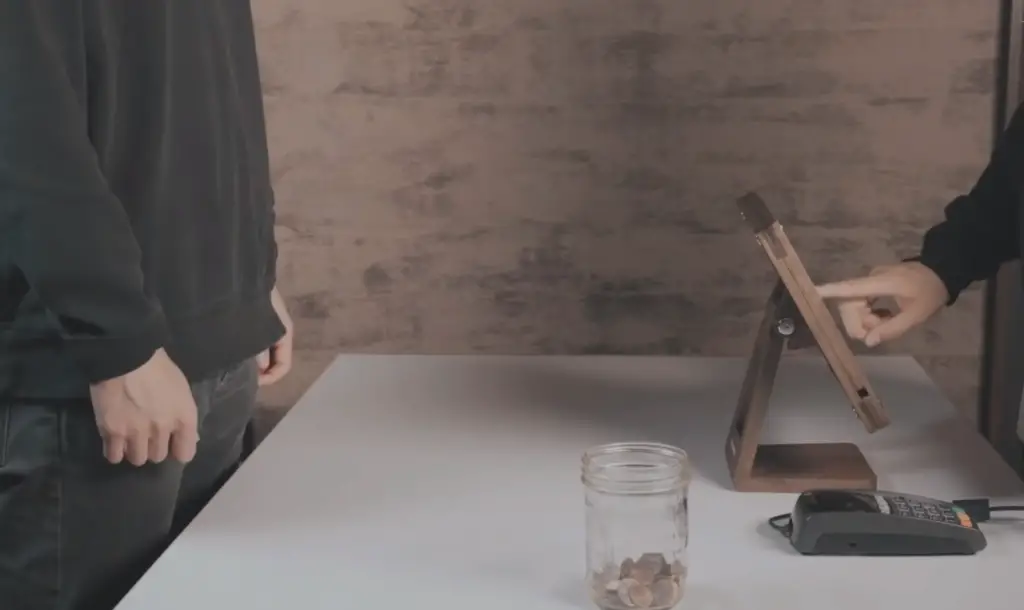
Seek help from a qualified bankruptcy attorney
Bankruptcy is a legal process created by federal law that allows people to discharge some or all of their debts and make an orderly repayment plan. A qualified bankruptcy lawyer can evaluate your situation and discuss the various options available to you, such as filing for Chapter 7 or Chapter 13 bankruptcy. In most cases, the filing of a petition for relief under either chapter can stop creditors from taking any collection action against you as soon as the petition is filed with the court. [2]
It’s also important to note that even if creditors have secured liens on collateral (such as your home), filing for bankruptcy may allow you to remain in the home while repaying the debt. A bankruptcy attorney can help explain what types of liens creditors might have and how they can be modified or even eliminated through a bankruptcy proceeding.
Secured debt vs. unsecured debt
Secured debt is tied to an asset that serves as collateral, such as a car loan or mortgage. If you default on payments for this type of debt, the lender can seize the asset and sell it to recover its losses. Unsecured debt, however, is not tied to any asset and therefore cannot be used as collateral by the creditor. Credit cards are generally considered unsecured debt because there is no underlying asset that can be repossessed if you do not make your payments.
Creditor would have to file suit
If a credit card company or other creditor is trying to take your house, the first step would be for the creditor to file a lawsuit and obtain a judgment against you. This process can vary from state to state, but it typically involves filing an action in court and providing evidence of your debt. Once the case has been heard and decided by the court, the creditor will have a legally binding document (the “judgment”) that entitles them to take certain actions, such as garnishing wages or seizing assets.
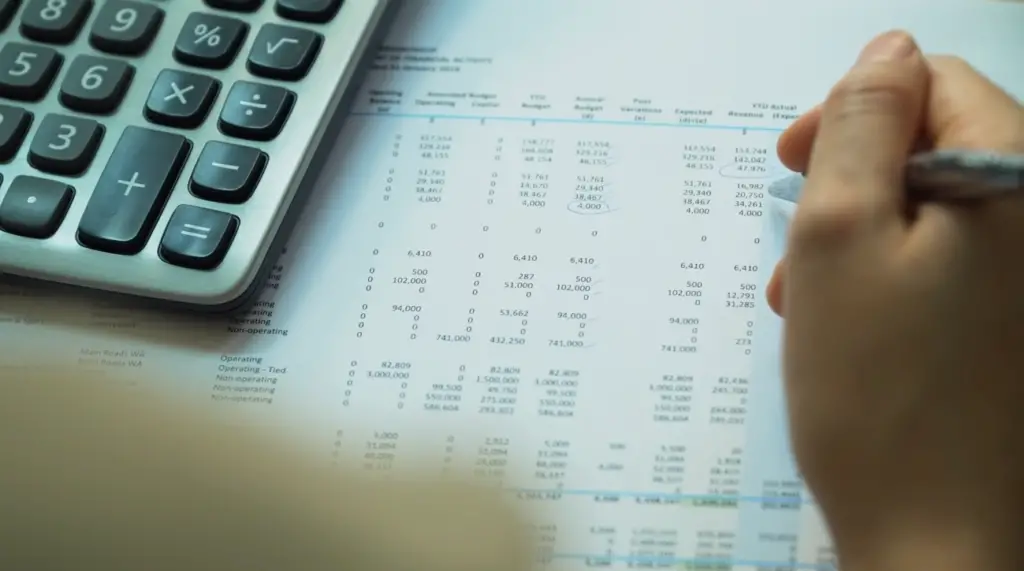
In order for the creditor to actually seize your home, they must go through foreclosure proceedings. If they are successful, they may then become the legal owner of your home and be
able to sell it and use the proceeds to pay off or partially pay off your debt.
It’s important to note that credit card companies rarely attempt to take a house, primarily because of the cost and time associated with doing so. If a creditor is attempting to do this, it likely means that you have significant outstanding debt, and they may be more likely to negotiate repayment plans or other solutions before taking legal action. If a creditor does file a suit against you for nonpayment of a credit card debt, it’s important to take the matter seriously and seek legal counsel as soon as possible. A qualified attorney can provide advice and representation in court, helping protect your rights and interests throughout the process.
It’s also a good idea to look into the laws in your state related to creditors’ rights. Many states have specific laws that protect debtors from overly aggressive collection tactics, and it’s important to be aware of these before entering into any negotiations with creditors. Knowing your rights can help protect you from any potential abuse or legal action by creditors trying to take your house for payment on a credit card debt.
Remember, even if a creditor does receive a judgment against you, they must still go through foreclosure proceedings before they can actually take possession of your home. It’s also worth noting that credit card companies rarely attempt this course of action due to the costs associated with doing so. If you find yourself facing this situation, take it seriously and seek the advice of a qualified attorney as soon as possible. Knowing your rights can help protect you from abusive practices by creditors, and understanding the foreclosure process can give you an idea of what to expect if it comes to that. With knowledge and preparation, you’ll be better able to protect yourself in this difficult situation.
The answer to “Can a credit card company take your house?” is yes — but only after filing a lawsuit and proceeding with costly foreclosure proceedings. It’s important to understand the laws related to creditors’ rights in order to protect yourself from aggressive collection tactics, and seeking legal counsel can also provide invaluable assistance during these difficult times. By arming yourself with knowledge, you’ll be better able to protect your own rights and interests if a creditor does attempt to seize your home for payment on a credit card debt.
Homestead exemptions
One way to protect your home from being taken away by a credit card company is to take advantage of homestead exemptions. A homestead exemption allows the homeowner to exempt some or all of the equity in their home from creditors, which provides an extra layer of protection. Homestead exemptions vary by state, and it’s important to review the regulations in your particular jurisdiction before you make any decisions involving your house and credit card debt. As a general rule, most states provide some sort of homestead exemption that protects at least a portion of the equity in one’s primary residence. The amount varies widely based on state law, so be sure to consult with an experienced attorney if you have questions about how much of your home’s equity is protected by law.

In addition to the exemption limits set by state law, some states may also provide additional homestead exemptions for certain people. For example, some states offer additional protections for veterans, seniors, or disabled individuals who are facing credit debt. Again, it’s important to understand the specifics of these laws in order to determine whether they apply to your situation.
Finally, there may be other local and federal regulations that provide further protection from creditors. Consulting with a knowledgeable attorney is the best way to learn about all of your options and find out what legal steps you can take in order to protect your home from being taken away by a credit card company. [3]
FAQ
What happens if I don’t pay all of my credit card bill?
If you don’t pay all of your credit card bill, the credit card company can take further action to collect payment. Your account may be referred to a collection agency or legal counsel and they may try to sue you for non-payment. If the lawsuit is successful, the court will enter a judgment against you and the creditor could obtain a lien on your property that would allow them to eventually seize assets from your home in order to satisfy their debt. However, this is an extreme measure taken only after other attempts at collecting payments have failed. In most cases, it’s best to contact your creditor as soon as possible if you’re having trouble making payments so that you can negotiate an alternative repayment plan before things get too serious. [4]
Can a credit card debt be forgiven?
The debt can be forgiven in certain circumstances, but this requires taking specific steps. In general, you will need to negotiate with the creditor for a settlement or work with a debt relief program.
If you are able to settle with the creditor, they may accept a lump sum payment that’s less than you owe and consider the rest forgiven. Depending on the amount of money owed and how much you have available to pay off the debt, this could be an effective way to reduce your debt load and save yourself some time and money in the long run.
Debt relief programs are also an option if settling is not possible or not desirable. These programs are typically provided by third-party organizations that negotiate with creditors on your behalf. They may be able to reduce the amount you owe, extend the terms of repayment, or even get interest rates and fees reduced. However, debt relief programs can have a negative impact on your credit score, so it’s important to weigh the pros and cons before entering into one.
Finally, if all else fails, you may be able to file for bankruptcy. This will require working with an attorney or other professional who specializes in this area of law. Bankruptcy is a serious step and should only be considered as a last resort after exploring all other options. [5]
No matter what route you choose to take when dealing with credit card debt, it’s important to seek professional help if needed. A financial advisor or credit counselor can offer advice and guidance on the best course of action for your particular situation. Taking proactive steps now can help you avoid painful consequences down the road.
So, to answer the question “Can a credit card company take your house?” – no, they cannot. However, that doesn’t mean you should ignore your debt. It’s important to face your financial issues head-on and work towards a solution as soon as possible. With careful planning and expert assistance, you can get back on track towards a more secure future.
How do I get out of credit card debt without paying?
If credit card debt is threatening to overtake your finances and you lack the means to cover it, there are several options that could provide relief without costing you a dime.
One is negotiating a settlement with your creditors. This involves offering them a lump sum payment that’s less than what you owe in exchange for them forgiving the remaining balance. You can negotiate directly with the creditor or hire a reputable third-party negotiator to do it on your behalf. While this approach may save you money, it will still damage your credit score and could have tax implications as well.
Another option is to set up debt management plans through nonprofit organizations which specialize in helping people manage their debt. They will negotiate with creditors on your behalf and create a plan to pay off the debt over several years. This approach can help you get out of debt without paying, but it could take longer than other methods and still damage your credit score.
Finally, consider filing for bankruptcy if all else fails. Bankruptcy may be able to completely wipe out your existing debts so that you don’t have to pay them back at all. However, this is an extreme measure and should only be considered as a last resort option since it has very serious long-term consequences for your financial future. [6]
No matter which route you choose, always make sure that you understand what’s involved before making any decisions or signing any agreements.
Can I lose my house over unsecured debt to the UK?
The short answer is no. Credit card companies cannot take your house in order to pay for unsecured debt such as credit card debt. Secured debts, on the other hand, involve collateral that can be taken if you fail to make payments.
However, that doesn’t mean companies won’t try to collect what they are owed by any means possible including court action or taking money directly from your bank account or wages. In the event that you find yourself overwhelmed with personal and store credit card debt, it is vital to seek help immediately before matters spiral further out of control. If you’re struggling to stay on top of your finances, a debt management plan or an Individual Voluntary Arrangement (IVA) could be the key to getting back in control. With these strategies, you can find relief and start fresh with your financials. [7]
It is important to remember that taking legal action against you can take a long time, and in most cases it will not result in your house being taken away from you. However, if you ignore several court summons, then the credit card company may eventually pursue options such as bankruptcy proceedings or attachment of earnings orders, which could lead to more serious consequences such as having money taken directly from your wages.
Useful Video: Can credit card companies take your home?
Conclusion
Ultimately, it is important to understand that a credit card company cannot take your house to satisfy the debt owed. Credit card companies have no rights to foreclose on your home; they are only able to pursue other avenues of collection such as wage garnishment or freezing your bank account. It is also important to remember that while filing for bankruptcy may eliminate some of your debts, it will not stop a credit card company from suing you if you still owe money. If you find yourself in this situation, taking action quickly and seeking assistance from a financial advisor is the best way forward. With their expertise and guidance, you can create a payment plan that works for both you and the creditor so all parties involved can benefit from the outcome.
References
- https://jaxlawcenter.com/blog/can-creditor-mortgage-company-take-home/
- https://www.natlbankruptcy.com/credit-card-lawsuits/
- https://www.bankrate.com/finance/credit-cards/credit-card-company-take-house/
- https://www.experian.com/blogs/ask-experian/what-happens-if-dont-pay-credit-card-bill/
- https://www.bankrate.com/finance/credit-cards/why-debt-forgiveness-is-not-as-forgiving-as-it-looks/
- https://www.debt.org/bankruptcy/eliminating-debt-without-paying/
- https://www.money.co.uk/guides/in-debt-whats-the-worst-that-can-happen





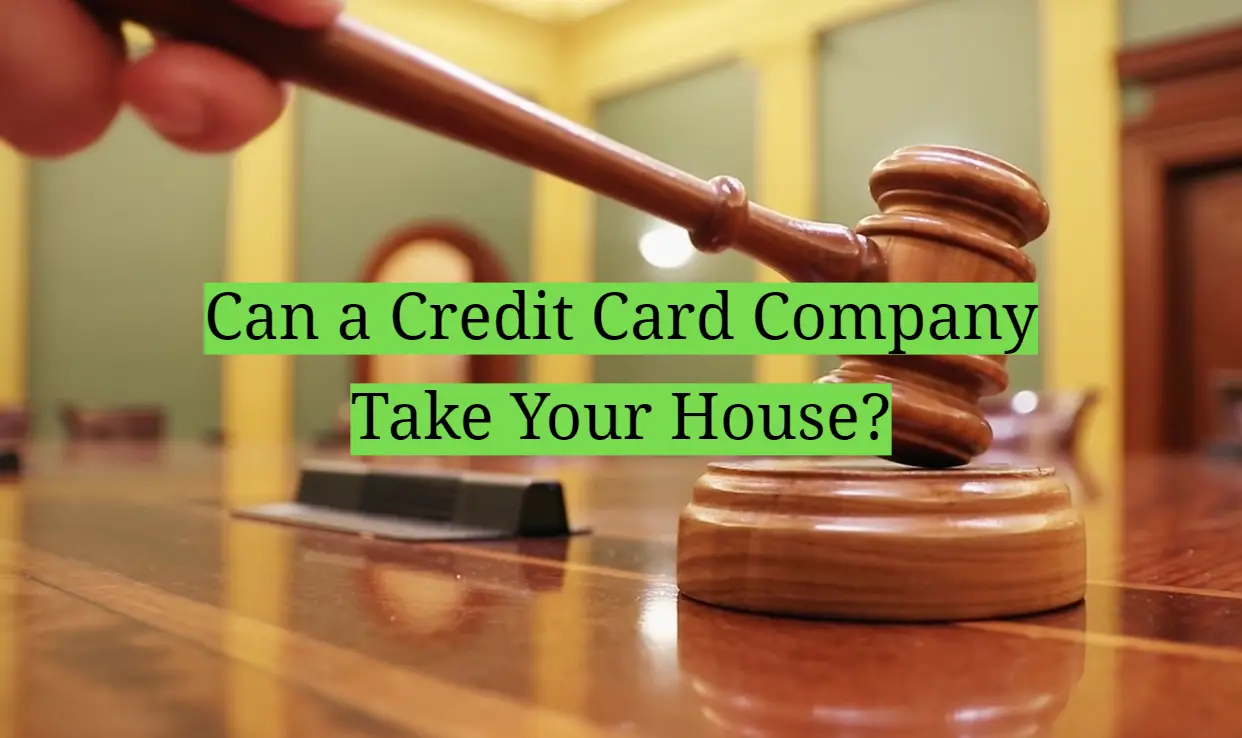








Leave a Reply